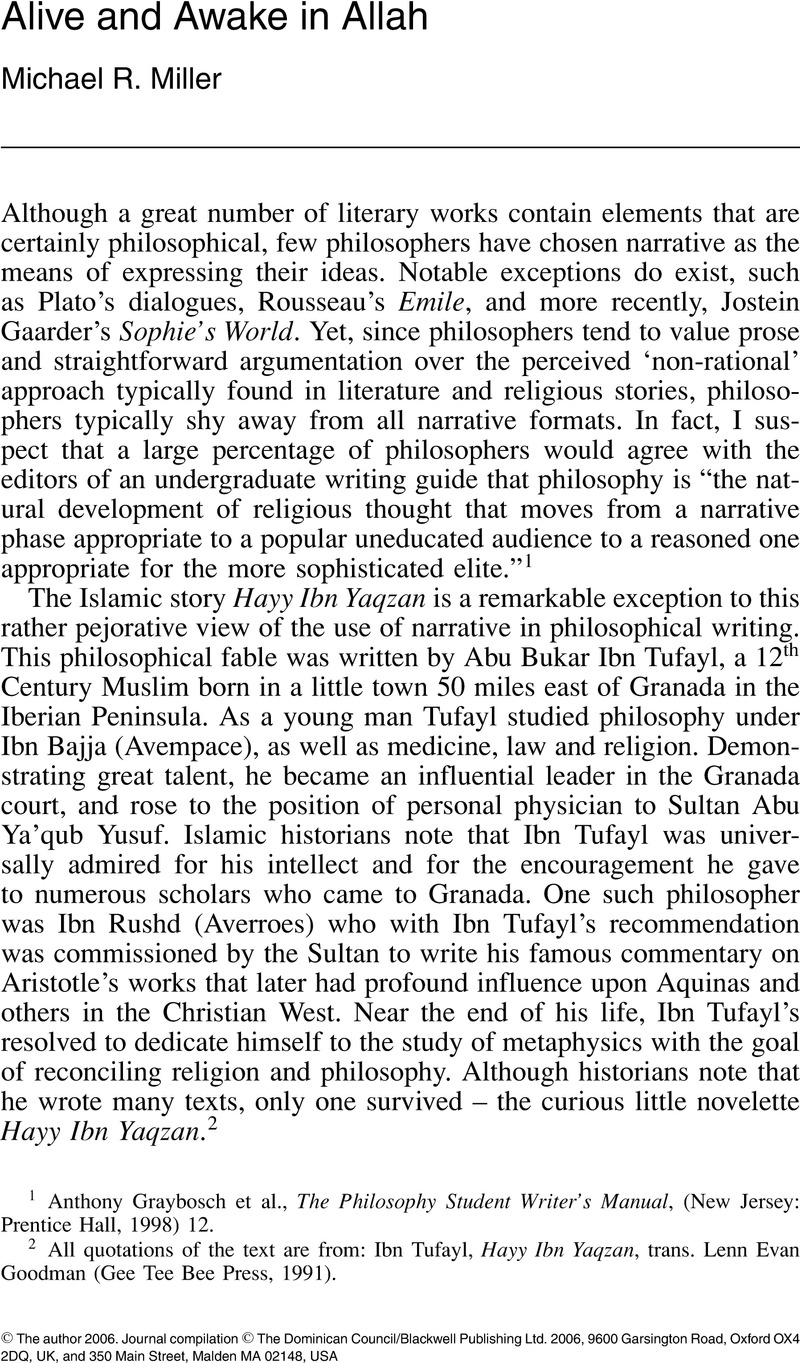No CrossRef data available.
Article contents
Alive and Awake in Allah
Published online by Cambridge University Press: 01 January 2024
Abstract

Information
- Type
- Original Articles
- Information
- Copyright
- © The Author 2006. Journal compilation © The Dominican Council/Blackwell Publishing Ltd 2006, 9600 Garsington Road, Oxford OX4 2DQ, UK and 350 Main Street, Malden, MA 02148, USA
References
1 Graybosch, Anthony et al., The Philosophy Student Writer's Manual, (New Jersey: Prentice Hall, 1998) 12Google Scholar.
2 All quotations of the text are from: Tufayl, Ibn, Hayy Ibn Yaqzan, trans. Goodman, Lenn Evan (Gee Tee Bee Press, 1991)Google Scholar.
3 Aristotle, Nicomachean Ethics, Book VIII.
4 For a contemporary and true illustration of how one person's passions can influence the desires of others, see Teacher: The One Who Made the Difference by Edmundson, Mark (Random House, 2002)Google Scholar.
5 For example, Tufayl resorts to explaining Hayy's mystical union in very vague terms, such as that Hayy ‘died’ to himself, saw “nothing in all existence but the everlasting ONE,” and discovered that “his true self was the truth” (150).
6 I suspect that the identification with Hayy is so strong that some students lose themselves in the story. That is, I believe that they are not simply interested in the story because they are curious to discover what will happen to Hayy. Instead, I think the story so captures them within it that they want to know what will happen to themselves.

